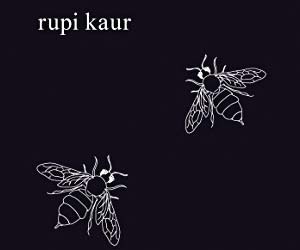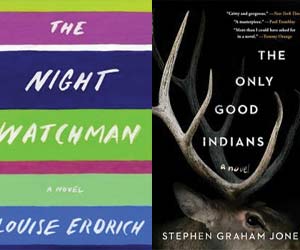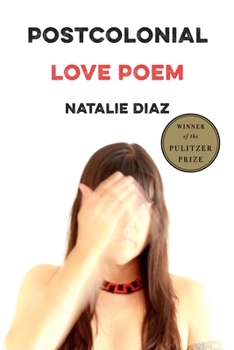Postcolonial Love Poem: Poems
WINNER OF THE 2021 PULITZER PRIZE IN POETRY
FINALIST FOR THE 2020 NATIONAL BOOK AWARD FOR POETRY Natalie Diaz's highly anticipated follow-up to When My Brother Was an Aztec, winner of an American Book Award Postcolonial Love Poem is an anthem of desire against erasure. Natalie Diaz's brilliant second collection demands that every body carried in its pages--bodies of language, land, rivers, suffering brothers, enemies, and lovers--be touched and held as beloveds. Through these poems, the wounds inflicted by America onto an indigenous people are allowed to bloom pleasure and tenderness: "Let me call my anxiety, desire, then. / Let me call it, a garden." In this new lyrical landscape, the bodies of indigenous, Latinx, black, and brown women are simultaneously the body politic and the body ecstatic. In claiming this autonomy of desire, language is pushed to its dark edges, the astonishing dunefields and forests where pleasure and love are both grief and joy, violence and sensuality. Diaz defies the conditions from which she writes, a nation whose creation predicated the diminishment and ultimate erasure of bodies like hers and the people she loves: "I am doing my best to not become a museum / of myself. I am doing my best to breathe in and out. // I am begging: Let me be lonely but not invisible." Postcolonial Love Poem unravels notions of American goodness and creates something more powerful than hope--in it, a future is built, future being a matrix of the choices we make now, and in these poems, Diaz chooses love.Related Subjects
PoetryCustomer Reviews
Postcolonial Love Poem: Poems Mentions in Our Blog

From the spellbinding elegance of National Youth Poet Laureate Amanda Gorman’s recent spoken-word performances to Instagram poet Kate Baer’s bestselling debut collection, poetry is definitely having a moment. Here we spotlight fresh new voices in verse.

One of the most exciting aspects of this year's National Book Awards is the diversity of the books and authors featured. From fiction and nonfiction to poetry, young people's literature, and translated works, this year's National Book Awards finalists provide a variety of perspectives.

November is Native American Heritage Month—a great time to pick up some of the resonant new titles by and about Indigenous people. We’ve curated a list of standouts in poetry, nonfiction, and fiction from the last several years. For younger readers, check out our post from last November.





